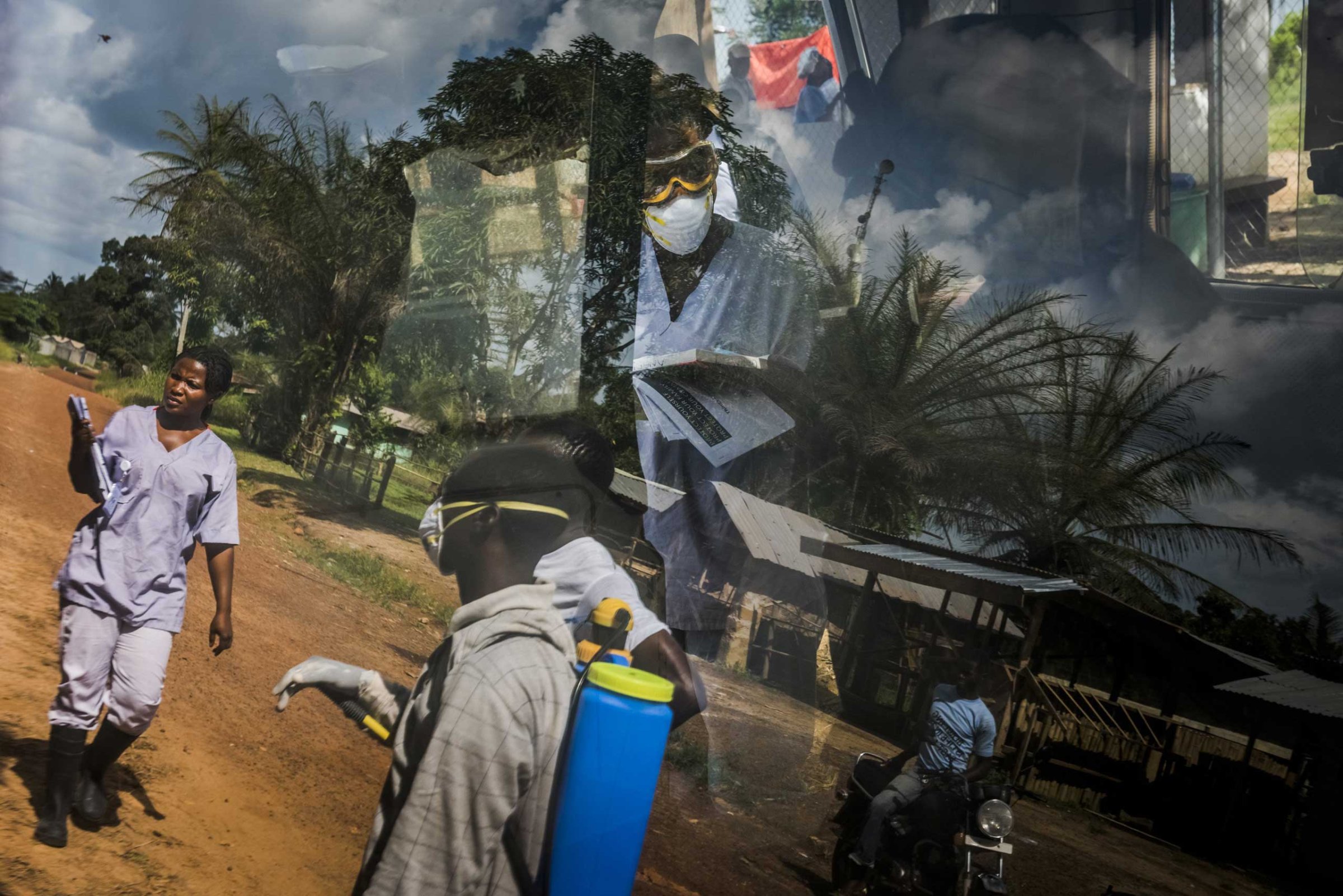
This year’s Ebola outbreak is far from over, and it has already killed more people than all other previous outbreaks: Nearly 5,000 people, among a total of about 13,200 cases. Even so, health experts are already bracing for the next deadly epidemics, which they fear are lurking on the horizon as a direct knock-on effect of the Ebola crisis, and which have the potential to kill many more thousands than that virus looks likely to do. Chief among them are two deadly diseases: Measles and malaria.
Take measles, whose power to spread and kill people is even more lethal than Ebola; it is about 18 times more infectious than Ebola. While almost all Americans and Europeans are immunized against measles, the disease killed about 122,000 people in 2012 (the most recent figures), many of them in Africa’s poorest parts, including the three Ebola-hit countries of Guinea, Sierra Leone and Liberia. Although that might seem like a grim death toll, health experts hail the figures as a sign of success of the U.N.’s mass vaccination programs, since the number has plummeted since the 1990s, when more than 500,000 people a year, or about 1,300 a day, died of measles.
But 2014 could mark the year when that progress slides back, at least in the three hard-hit Ebola countries. Among the multitude of problems Ebola has brought is the fact that mothers are currently giving birth at home, rather than in clinics—an act that health workers in Africa have spent years trying to persuade them not to do.
As Ebola swept through Guinea, Sierra Leone and Liberia late last year and early this year, vaccination programs struggled to keep pace with the huge demands of treating those patients. Desperately short of health workers at the best of times, the countries focused their meager resources on trying to control the outbreak, throwing regular health services into havoc. By mid-summer, say health experts, countless clinics had shut down, while those that remained open found families deeply reluctant to visit, for fear of being infected with Ebola. “Limited human resources were diverted to the outbreak,” says Peter Salama, a Unicef epidemiologist who heads the organization’s global Ebola response. Salama estimates that in Liberia at least half the children who ought to have been vaccinated against measles and other diseases this year have not been. “Measles is very highly transmissible,” he told TIME on Monday. “You need high coverage to prevent an outbreak.”
Health workers are fearful too. As Ebola has spread, one of their most essential tasks—vaccinating children—has now become one of the most dangerous to perform, since infections occur through bodily fluids. “We limit the use of needles tremendously in these circumstances,” says Christopher Stokes, general manager of the Doctors Without Borders (MSF) Ebola crisis center in Brussels, which coordinates MSF’s outbreak response. In additions, officials in those countries have stopped crowds of people from gathering–exactly the situations where mass vaccinations are performed–in an attempt to contain the outbreak. “Routine vaccination services are free in these areas, and all of that has stopped,” Stokes says. “The question now is, how do you restart immunizations in the middle of an Ebola epidemic? Everyone is right to be worried about it.”
The other big post-Ebola epidemic could be malaria, which is a huge killer even in normal years; about 627,000 people died of malaria in 2012— 125 times the number that have so far died of Ebola this year. Unlike measles (and similar to Ebola) there is no vaccine for malaria. But Unicef and others distribute free anti-malarial tablets and mosquito repellents to millions of Africans. Those programs have also faltered this year, as health workers scramble to treat Ebola patients, and as clinics that would normally conduct malaria programs have shut. MSF workers recently began distributing malaria tablets in Ebola-hit villages, by having people throw coupons from a distance and then picking up their kits without contact with health workers.
While programs like that might help to stave off a spike in malaria deaths, halting a deadly outbreak of measles—a totally preventable disease—could prove a lot more complicated. “Immunization will have to be very carefully done,” Stokes says. “This will not be an easy one.”
More Must-Reads from TIME
- Cybersecurity Experts Are Sounding the Alarm on DOGE
- Meet the 2025 Women of the Year
- The Harsh Truth About Disability Inclusion
- Why Do More Young Adults Have Cancer?
- Colman Domingo Leads With Radical Love
- How to Get Better at Doing Things Alone
- Michelle Zauner Stares Down the Darkness
Contact us at letters@time.com